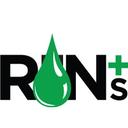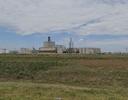Access the experts behind a revolutionary biodiesel process
February 11, 2015
BY Ron Kotrba
Do you want to learn about the latest, cutting-edge biodiesel process technology available today? Are you a biodiesel producer exploring new ways to utilize low-cost, low-quality feedstock? Does the use of liquid enzymes for biodiesel production intrigue you but batch processing turns you off? If you answered yes to any of these questions, then you won’t want to miss our webinar Thursday, Feb. 12, at 2 p.m. Central time, titled “Continuous Flow Enzymatic Processing.” This is the latest event in our Biodiesel Magazine Webinar Series, and it is sponsored by Viesel Fuel. The best part is, it’s free. Click here to register.
I am moderating the webinar and we have three speakers ready to discuss the technical ins and outs of continuous flow enzymatic biodiesel processing.
Per Munk Nielsen with Novozymes will give a presentation titled, “Continuous Flow Enzymatic Biodiesel Processing: The Enzyme Part.”
“In the presentation my focus will be on the enzyme reaction itself, which produces the crude biodiesel for further downstream processing,” Nielsen says. “The presentation introduces the enzyme as catalyst for biodiesel production and describes the way it reacts with methanol and the oil components. Some of the properties of the enzyme will be discussed as they are the basis for how to operate with it in batch as well as continuous production setup. Then I will turn to how the experience from batch mode operations is the foundation for the continuous stirred tank reactors (CSTR), and illustrate some basic engineering principles that are used in the design of CSTR plants. I will emphasize some of the important parameters in the enzyme process and illustrate with a few data from our laboratory CSTR how it works. Our development has concluded that a low-cost liquid formulated enzyme—Eversa Transform—for the biodiesel process is the most efficient process for biodiesel from low-quality oils. This differs from other companies who suggest immobilized lipases. I will discuss some of the main differences between the liquid and immobilized enzymes and the impact on the production process.”
Advertisement
Another speaker on the webinar, Brent Chrabas, a quality engineer for Viesel Fuel, is prepared to give his presentation, titled, “Continuous Enzymatic Biodiesel Processing.” The presentation will include discussion on laboratories, a CSTR overview and feedstock selection.
“Feedstock costs are recognized as the highest variable cost in the production of biodiesel, accounting for up to 80 percent of the material costs associated with making a gallon of biodiesel,” Chrabas says. “The enzymatic biodiesel pathway allows for the use of feedstocks that are lower in cost by comparison and have limited use in conventional biodiesel processes. The ability to optimize process inputs in a continuous system led to the development of the continuous enzymatic biodiesel process. Working in collaboration with Novozymes, Tactical Fabrication and Purolite, the Skunk Works team is pioneering the use of enzymes in its continuous enzymatic biodiesel process.”
Chrabas says at its world headquarters in Stuart, Florida, Viesel Skunk Works LLC has demonstrated the continuous enzymatic reaction, which has been used as a test-bed for the scalable process.
Advertisement
“The basic tools required for an enzymatic biodiesel laboratory and how they aid in determining the suitability of various lower cost feedstocks will be outlined in this presentation,” Chrabas says, “along with a general overview of the continuous enzymatic biodiesel process.”
Finally, Frankie Mathis, owner and CEO of Tactical Fabrication, will be rounding out the webinar panel.
“Being able to process typically undesirable feedstocks in today’s market is a must,” Mathis says. “We have to seek out a different variety than what has normally been sought after. The enzymatic process opens the door for a wide variety of feedstocks that up until now could not have been made in to ASTM D6751 fuel. Economically the process did not exist.”
Mathis will guide current producers through what modifications must be done to an existing plant to take advantage of this new process utilizing existing infrastructure.
We look forward to you joining us on the webinar Thursday, Feb. 12, at 2 p.m. Central time. Simply click here to sign up for free. For those who can’t make the call due to a scheduling conflict, if you register, you will have access to the recorded event. And for those who attend the webinar and want to listen to it again, you will be able to view the presentation in its entirety at your leisure.
Related Stories
Biodiesel capacity in the U.S. and Canada dipped slightly stable in 2024, with several renewable diesel producers reporting headwinds and lower margins alongside a drove of SAF projects in various stages of development.
The IEA’s Task 39 group has new research regarding the development and status of the sustainable aviation fuel industry.
The U.S. EPA on Nov. 16 released updated RIN data, reporting that nearly 2.11 billion RINs were generated under the RFS in October, up from 1.81 billion generated during the same month of last year.
Conestoga to host SAFFiRE cellulosic ethanol pilot plant
Conestoga Energy and SAFFiRE Renewables LLC announced on Nov. 16 their agreement for Conestoga to host SAFFiRE’s cellulosic ethanol pilot plant at Conestoga’s Arkalon Energy ethanol facility in Liberal, Kansas.
Officials at Calumet Specialty Products Partners L.P. discussed the company’s proposed plans to boost sustainable aviation fuel (SAF) production at its Montana Renewables biorefinery during third quarter earnings call, held Nov. 9.
Upcoming Events










